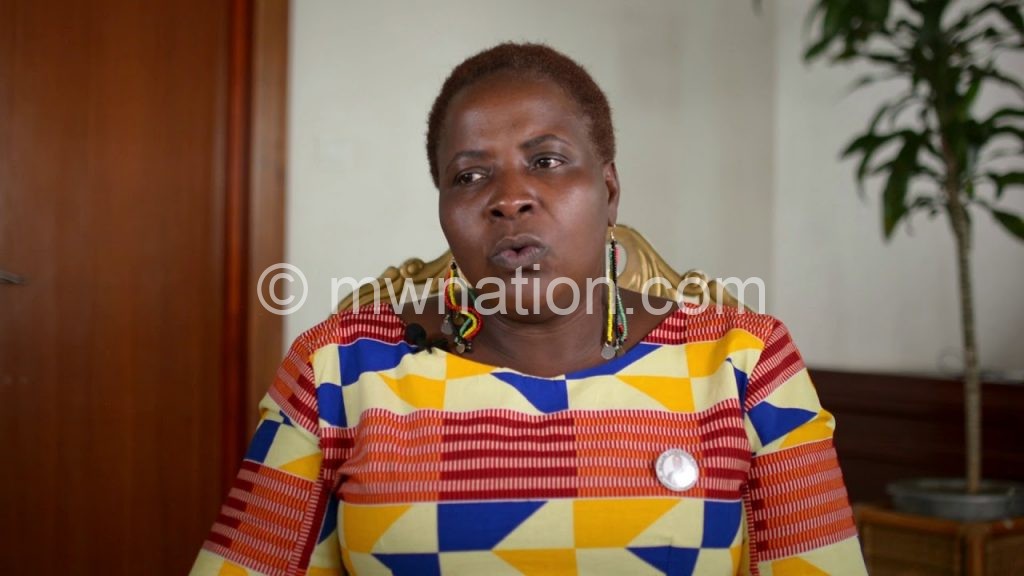Back to school
Parents, guardians and students in Blantyre and Lilongwe can now breathe a sigh of relief as the Presidential Task Force on Covid-19 and Cholera has said schools in the two cities should open on January 17.
The schools were scheduled to open on January 3 2023 for the second term, but Ministry of Education and the task force delayed the opening for two weeks to monitor the cholera situation which was worsening in the two cities.
Briefing journalists in Lilongwe yesterday, Minister of Health Khumbize Kandodo Chiponda said the task force was satisfied with the levels of hygiene in the two cities, which is central to prevention of cholera in schools.
She said: “When we postponed the opening of schools in the two cities, we said we wanted to monitor the situation of the school environments in terms of availability of water, clean toilets and availability of hand washing facilities and we have seen that everything is fine.”
Ironically, data collected in the past seven days indicate that between January 4 and 10, few cholera deaths have been recorded than was the case during the week before the task force announced the postponement of the re-opening of schools.

At the time of postponement, the two cities had registered an accumulated 1 298 new cholera cases and 72 deaths within seven days.
On the other hand, the accumulated new cases in the past week stand at 1 404 and 106 deaths.
But Chiponda, who is co-chairperson of the task force, said they decided to open the schools after being satisfied with how other schools which opened on January 3 2023 have behaved on adherence to cholera preventive measures.
“As I have already said, the task force was looking at a number of factors, one of them was assessing compliance to set preventive measures by other schools and it has shown that schools are safe hence reopening,” she said.
However, the minister admitted that challenges were also encountered such that within the period when the schools opened, 127 cholera cases and eight deaths were registered in schools nationwide.
On the improved water and sanitation situation in affected schools, Minister of Water and Sanitation Abida Mia said water
boards have reconnected water disconnected due to bills and the ministry has carried out maintenance work on boreholes that broke down.
Minister of Education Agnes NyaLonje said her ministry managed to provide remedial lessons to students affected by the delay in opening schools in Lilongwe and Blantyre.
“We were offering lessons through MBC Radio 1, MBC Radio 2 and Hope Education Radio. For MBC radios 1 and 2 alone, we were able to reach out to 75.5 percent of learners so we are not worried there,” she said.
Asked how the ministry measured the impact of the remedial lessons, the minister said: “We have a department which collects data and feeds us for decisions.”
But in an interview, education expert Dr Limbani Nsapato cast doubt on the figure, saying there is no evidence that the remedial classes benefited 75.5 percent of students.
He said his organisation, Edukans, was also on the ground monitoring the situation in schools and found that it was not easy for many students to follow such lessons with household demands such as garden work.
Said Nsapato: “Some learners had challenges in accessing the platforms the minister referred to.
“Perhaps even the fact that some schools attempted to relocate to other places outside Lilongwe and Blantyre just to keep delivering lessons, is evidence that the remedial classes were not effective.”
Health rights activist Maziko Matemba has since warned that although the news of the re-opening of schools is exciting, care has to be taken because cholera is a serious public health threat which can shrink the whole government system if neglected.
In an interview yesterday, he said there was need for strict enforcement of hygiene measures in schools.
Said Matemba: “One thing we have to remember always is that there can be no school if there are no people, this means we need
to consider public health when making decisions.
“Now that the decision has been made, the important thing is to ensure that there is maximum hygiene in those schools.”
As of yesterday, the country had recorded 22 759 cholera cases since the first case was recorded in March last year the number of deaths was at 750, current cases in treatment units were 892 while 27 districts have reported cases in the past 14 days





